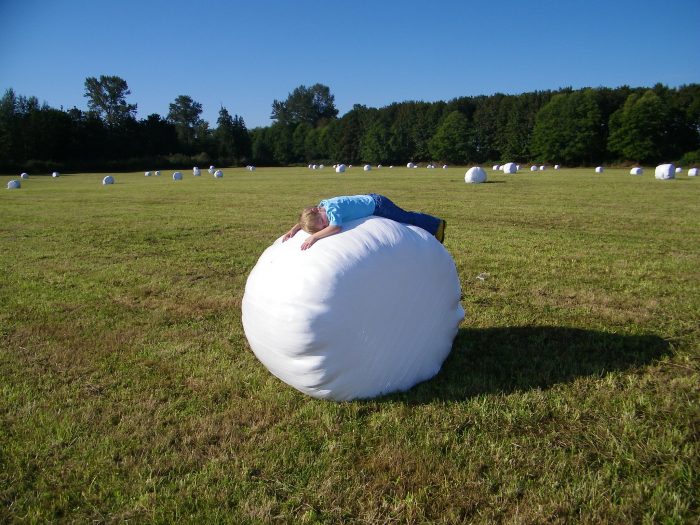When I was four years old, I was burned in a terrible fire.
I spent days—weeks, months—alone in the hospital.
1960s burn care was effective enough to keep me alive, but surviving the burn care itself was torture. My blackened skin was scrubbed off and my open wounds were patched over with new skin. The lower half of my face and neck were reconstructed and sewn back together, slowly, painstakingly, one excruciating operation at a time. There was no pain relief given to burned kids back then. The searing pain was just something a child must endure.
I was four and I was alone. My parents visited me only on the weekends, due to geographical distance and their own self-preoccupation. Doctors and nurses would tell me it was time for another operation, or another horrific dressing change. That was the only way to get better. So, I submitted to the dressing changes. And I had my scary operations. I did what I was told, by people whom I trusted, and eventually I did get better.
Perhaps because of these formative experiences, I am a champ at delayed gratification. If you tell me that a certain action is required for a positive outcome, and if I believe you, I can delay gratification for decades. You know those people who started saving when they were 18? That’s me. You know those people who exercise every day? That’s me. (Well, maybe not every day, but I try.) You know those people who meditate every morning? That’s me too. I do all these activities, not because I want to, but because experts convinced me to delay my gratification for a later greater good.
In 2020, the year of COVID-19, we are all learning a lesson in the importance of delaying gratification. The capacity to put off doing what we want right now, so that we can have something much better later…this ability could save all our lives, just like it saved mine, decades ago.
Some of us follow the COVID-19 recommendations exactly. We are the ones who RSVP “regretfully decline” for the family wedding. We are the ones who say we can’t meet at the restaurant. We are the ones who perhaps feel slightly absurd, vigorously following precautions, while seeing our friends’ vacation photos on Facebook. We stay away from elderly relatives. We shout pleasantly at our neighbors from across the street. We do all these things, understanding that we must delay what we want right now (adventure, socialization, a decent meal) for more important gains later (keeping everyone alive).
Some of us can postpone joy and some of us…can’t. Why not? We receive mixed messages in the media, and some of us do not understand the true dangers. We are on a slippery slope, in which more and more people are taking more and more risks. And the more risks they take, not getting sick, the more risks they feel inclined to take. And some people have never been good at delayed gratification.
There was a classic 1960s psychology experiment, commonly referred to as the “marshmallow study.”
Preschoolers were left alone in a room with a marshmallow on the table, right in front of them. The researcher told the kid that they could eat the marshmallow right away, if they wanted to. However, if they could just wait 10 more minutes, they would be able to eat two marshmallows. Thus, it was clearly in the child’s best interest to sit and wait 10 minutes before eating that marshmallow. If they could wait, they would double their bounty.
After the researcher left the room, about one third of the children were immediately overcome by the marshmallow, and scarfed it right down. Another third tried, but lost the battle at some point during the 10 minutes. But one third of the kids were champs. They waited and waited and waited. They sang songs to distract themselves. One practical boy grabbed a 10-minute nap.
The researchers tracked these kids for years. The same kids who could wait did better in school, earned higher SAT scores, and maintained better physical and emotional health as adults. (I bet they even meditated, exercised, and saved for retirement.)
These days, we are all engaged in a giant marshmallow test. We are being asked to stay home, keep our hands to ourselves, wear masks, and maintain our six feet perimeters. We are asked to do these things in the hope of earning our two marshmallows: defeating the virus and saving lives.
Some of us diligently follow these rules. Maybe we take a risk here or there; going to the shore for the day or visiting our grandmothers. But generally, we stay put, trusting in science and delaying our gratification. Some of us…don’t. Just this month, college students returned to their campuses. They were instructed to stay in their dorm rooms as much as possible and to avoid gatherings. Still, many students ignored the rules and started partying. New hot spots have formed, many of them clearly located in the same towns that house universities.
In the original marshmallow test, one kid’s actions did not affect everyone else. If one little girl grabbed her marshmallow with two fists, it didn’t mean that every other child was deprived. Each child had free will, able to choose either an immediate treat or a longer wait for two. But, in our current national marshmallow test, one person’s failure to delay gratification can possibly endanger many others. Any one of those partying students can infect another one, who can go home, and infect their entire family. Just one marshmallow-eating person endangers many others.
What can we do?
First, take heart. There are many people making good choices. Thousands and thousands of people wear masks, avoid crowds, stay home, and are not eating their marshmallows. You are not alone. Rule-followers may not make the news, but that doesn’t mean that we aren’t in the majority. Lots of people are being careful and you are in good company.
Second, have hope. There are armies of scientists, working 24/7, developing vaccines, and methodically testing them. These scientists are not exercising blind faith; they are highly trained professionals. They study, they hypothesize, they replicate, compare to control groups, and replicate again. Scientists have advanced the public health interest for hundreds of years. They taught us why we should wash our hands. They discovered penicillin and eradicated Smallpox. Scientists are once again working diligently to solve the COVID-19 crisis. Vaccines are coming. They are coming soon.
Third: set a good example. People mimic each other. If you wear a mask, more people will wear masks. (Conversely, if you attend parties, more people will attend parties.) Set an example. Be a trendsetter!
Fourth: keep perspective. Humans have lived through worse than this. People have endured slavery, famine, and nuclear holocaust. Having to stay home and wearing a mask at the grocery store is not in the same league. I grant you, this is a stressful, upsetting, and disappointing time. And if you are one of the people who has been sick, lost a loved one, or lost your business, then yes, this is a devastating time. But for most of us, this year is not that hard. You know what’s hard? Dying from COVID-19. You know what’s harder? Watching someone you love die from COVID-19, fearing that you gave it to them.
We will make it through this. Hold on for the two marshmallows.











Read 3 comments and reply